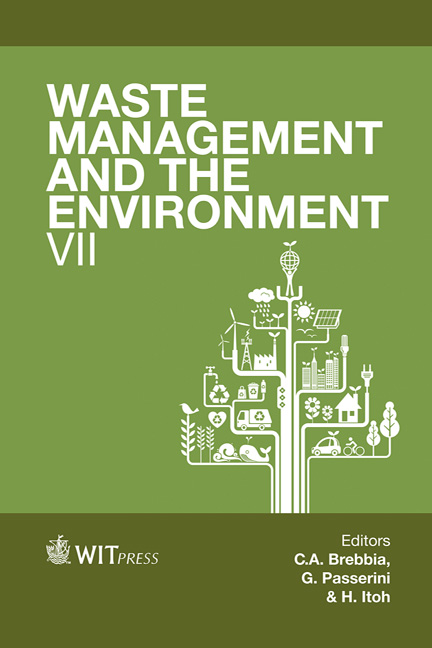Bioremediation Of Contaminated Marine Sediments: Examples Of Successful Applications
Price
Free (open access)
Transaction
Volume
180
Pages
9
Published
2014
Size
581 kb
Paper DOI
10.2495/WM140291
Copyright
WIT Press
Author(s)
L. Rocchetti, V. Fonti, F. Beolchini & A. Dell’Anno
Abstract
Harbor sediments are often characterized by the presence of inorganic and organic contaminants, and this fact represents a relevant problem both when sediments are dredged and when they are left in the sea bottom. In this study we present the main results achieved by our research group in laboratory experiments addressed to marine sediment bioremediation. Dealing with sediments mainly contaminated with metals, several bioremediation strategies for metal biomobilization and biostabilization were tested. When the aim was to mobilize the metals from the sediments, Fe-reducing bacteria and the Fe/S oxidizing bacteria were used, and high extraction yields were obtained (> 90% for Cu, Cd, Hg and Zn). Other experiments with the same purpose where carried out with sediments and Fe2+ to stimulate a mix of allochthonous acidophilic autotrophic and heterotrophic bacteria: Ni and Zn mobilization was enhanced (up to > 40%), while other metals were more stable. The situation is more complex when sediments present a mixed contamination of hydrocarbons and metals. The experiments were based on the use of sulfate reducing bacteria and acetate under anaerobic conditions to stimulate hydrocarbon biodegradation. Although high hydrocarbon degradation were achieved (> 40%), metals could be mobilized. Other treatments under anaerobic conditions with acetate and lactose lead to high hydrocarbon degradation (up to 80%) and metal stabilization (Cu and Zn). In sediment mainly contaminated with aliphatic and polycyclic aromatic hydrocarbons we tested the effect of a supply of inorganic nutrients and sand on hydrocarbon degradation (> 70% for aliphatic hydrocarbons and 40% for the aromatics). A semi-empirical kinetic model was fitted to the temporal changes of hydrocarbon concentrations to predict their degradation. Overall our data are of support for the improvement of the efficiency of bioremediation treatments. Keywords: marine sediment, bioremediation, metals, hydrocarbons.
Keywords
marine sediment, bioremediation, metals, hydrocarbons.





